As often happens, I get psyched reading something like an article that offers a new twist on hockey passing, this one actually from a basketball piece from the Salt City Hoops website called "Playing With the Pass: A Key for the Utah Jazz". Trust me, too, that it's beautiful.
-- Dennis Chighisola
A New Twist on Hockey Passing
The article, by David J Smith, starts with, "When Utah Jazz head coach Quin Snyder was hired in the summer of 2014, one of the points of emphasis that was consistently mentioned was his desire to see his team 'play with the pass'. A focus on a pass-heavy system that espoused ball movement, spacing and unselfishness was music to Jazz fans’ ears. Sharing the ball, after all, was one of the hallmarks of the great Jerry Sloan-led squads that were perennial contenders. It is, to tap into the basketball cliche realm, something that faithful associate with 'Utah Jazz basketball'. One could not help but also think of Coach Norman Dale’s admonishment to his Hickory High players to pass the ball four times. Passing, in short, is part of beautiful basketball, including the brand Jazz fans have become accustomed to."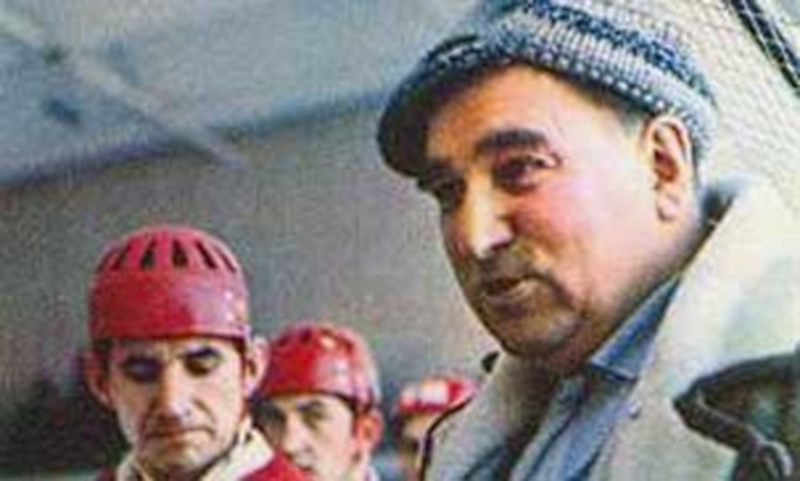 Does that last part sound familiar to my long time members? I mean, it sounds an awful lot to me like the approach old Soviet hockey teams used in their offensive game plans.
Does that last part sound familiar to my long time members? I mean, it sounds an awful lot to me like the approach old Soviet hockey teams used in their offensive game plans.
Going back to the old Soviets for a moment, I'm on record within these pages as saying that their great passing game was a matter of mentality -- or maybe philosophy. In other words, the Russian players had a great appreciation of that skill, and I do mean that it's a skill as well as a tactical tool. But, I'll get into that a little later.
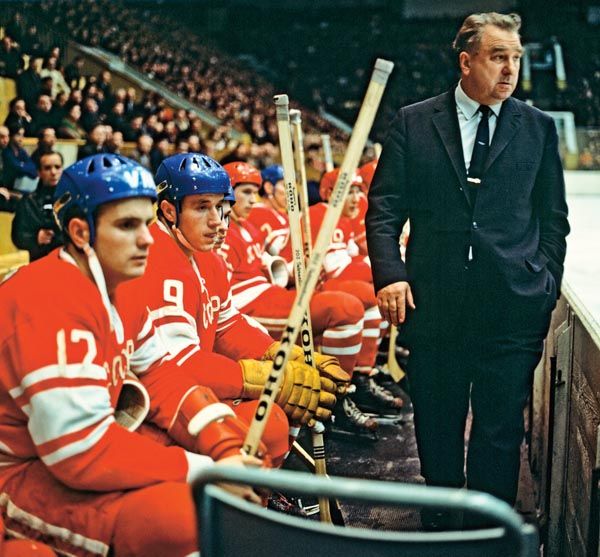 The author then offers to detail some of the reasons the Jazz should do far better in the coming season, and these are things I'd like member coaches to make note of...
Familiarity is certainly a biggie, as in players playing together for a fair amount of times. As he suggests, "Volumes could be spoken on this topic. With a season under their belts, there is a quiet confidence emanating from the Jazz camp. They truly — and understandably so — feel that the team will see growth this season with a continued upward trajectory." Ya, a team does usually feel more and more comfortable with a unique system as time goes by.
Development -- or continued work and growth -- fall on the shoulders of a good teaching coach. The author says so much, as in, "Snyder’s reputation as a coach who develops his players was on full display last season, and he did not disappoint." He goes on to describe the coach's influence last season as it pertained to veterans, new young players and newly acquired players. Then, he mentions something I'd like to be able to say about CoachChic.com member coaches, as in, "Snyder is a player’s coach who works tirelessly to help his guys realize their potential incrementally. He is detail-oriented, dedicated and pores over game tape and analytics. Above all, Snyder knows his players. He knows their strengths and helps tailor things to bring those out. It will be interesting to see how the young players perform this season. Because of Snyder, it would not surprise to see the Jazz develop more as individual and collective passers."
The author then offers to detail some of the reasons the Jazz should do far better in the coming season, and these are things I'd like member coaches to make note of...
Familiarity is certainly a biggie, as in players playing together for a fair amount of times. As he suggests, "Volumes could be spoken on this topic. With a season under their belts, there is a quiet confidence emanating from the Jazz camp. They truly — and understandably so — feel that the team will see growth this season with a continued upward trajectory." Ya, a team does usually feel more and more comfortable with a unique system as time goes by.
Development -- or continued work and growth -- fall on the shoulders of a good teaching coach. The author says so much, as in, "Snyder’s reputation as a coach who develops his players was on full display last season, and he did not disappoint." He goes on to describe the coach's influence last season as it pertained to veterans, new young players and newly acquired players. Then, he mentions something I'd like to be able to say about CoachChic.com member coaches, as in, "Snyder is a player’s coach who works tirelessly to help his guys realize their potential incrementally. He is detail-oriented, dedicated and pores over game tape and analytics. Above all, Snyder knows his players. He knows their strengths and helps tailor things to bring those out. It will be interesting to see how the young players perform this season. Because of Snyder, it would not surprise to see the Jazz develop more as individual and collective passers."
"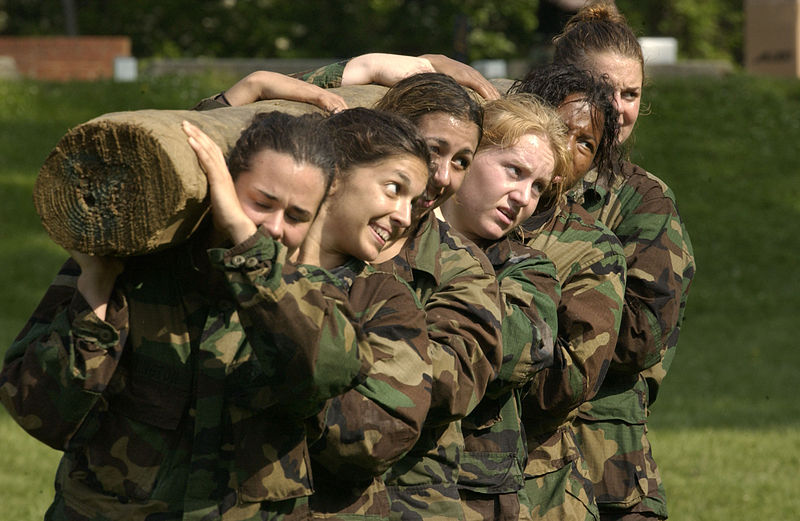 Collective" seems a Communist term, but I think that mentality had a lot to do with the Soviet players giving of themselves for the sake of their teammates (or comrades). Make not mistake about it, though, that passing is also a skill, which first requires great puckhandling skills so that pucks can be sent at just the right force and always on target.
Collective" seems a Communist term, but I think that mentality had a lot to do with the Soviet players giving of themselves for the sake of their teammates (or comrades). Make not mistake about it, though, that passing is also a skill, which first requires great puckhandling skills so that pucks can be sent at just the right force and always on target.
The author next cites capable passers, which is what I just said above. So he goes on to say, "... the roster is full of players who are capable facilitators. Hayward’s ability to dish the ball has always been one of the strongest aspects to his game. He is an elite passer, particularly from the small forward position. The offense flows nicely when Ingles is on the court as well-- he is a fantastic glue guy whose unselfishness is contagious. Trey Burke had a rough sophomore campaign, but as a rookie, he showed the ability to run the offense while taking good care of the ball. Hood has already spoken in training camp about his desire to improve in this facet. Having Alec Burks, a very underrated passer, back in the fold will be a boon. And teammates are already raving about rookie Raul Neto’s court vision. As a pure point guard, if people remember what those are, he could be a big help in playing with the pass. The Jazz do have a cadre of able passers at the guard and wing spots."
 Collective" seems a Communist term, but I think that mentality had a lot to do with the Soviet players giving of themselves for the sake of their teammates (or comrades). Make not mistake about it, though, that passing is also a skill, which first requires great puckhandling skills so that pucks can be sent at just the right force and always on target.
Collective" seems a Communist term, but I think that mentality had a lot to do with the Soviet players giving of themselves for the sake of their teammates (or comrades). Make not mistake about it, though, that passing is also a skill, which first requires great puckhandling skills so that pucks can be sent at just the right force and always on target.
I hope members are getting a feeling that players "buying into" the coach's philosophy is perhaps the biggest need of all. I guess the Jazz's coach has managed that well, and so did the old Soviet coaches.
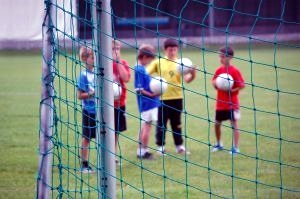 Actually, it may have been easier for the Big Red Machine coaches, for two reasons...
Actually, it may have been easier for the Big Red Machine coaches, for two reasons...
Number one, I'd already suggested that the Soviet -- or Communistic -- way of life encouraged team play -- on the ice, and in every facet of their lives away from the rink.
Secondly, nearly every young Soviet athlete either played some soccer or they knew that game well. And, soccer is all about passing, weaving, passing and passing.
The author went even further, in suggesting that, "The Jazz big men can dish the ball."
And he closes with, "In summary, 'playing with the pass' is a phrase Jazz fans will continue to hear. If Utah makes some more strides, an improved passing game could contribute heavily to the team’s desire to be a more effective offensive unit — something that could help it achieve its goal of reaching the playoffs."
In summarizing myself, let me remind members of a few things... It's obviously important to sell our players on this new twist on hockey passing -- it's not going to fly unless everyone is on board. Remember, too, that a great hockey passing game isn't going to develop until all the players are skilled enough -- to handle the puck with their eyes up to see all the options, and to make firm and dart-like passes to teammates' sticks.
In my dad's coaching days, he used to like to work the players hard in practices, and then tell them to forget everything they'd learned when the games began. Oh, he wasn't suggesting that players should play mindlessly at all; what he was suggesting is that constant work in practices would have them executing perfectly in games -- without much thinking. In other words, his players could just read and react.
With that, I'm going to suggest that the coach do all sorts of things to have players attack in practices while making X-number of passes -- while making that fun.
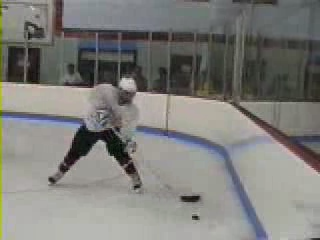 I also used to run a drill where five skaters and a goaler occupied one zone, continuously moved, and exchanged passes for about a minute at a whack. In the early going, it was difficult enough for the skaters to remember to constantly face the puck wherever it was, to make good passes and to catch them. Over time, I added new twists to this little game, telling players they could only make drop passes, or that they could only make bank passes off the boards.
I also used to run a drill where five skaters and a goaler occupied one zone, continuously moved, and exchanged passes for about a minute at a whack. In the early going, it was difficult enough for the skaters to remember to constantly face the puck wherever it was, to make good passes and to catch them. Over time, I added new twists to this little game, telling players they could only make drop passes, or that they could only make bank passes off the boards.
I'd highly recommend that members go through all the posts I've done under the Passing & Receiving category. I'd also suggest using some of the passing drills or games I describe for using balls instead of pucks -- these work. And, if you think about it, games of keepaway greatly prepare players for a passing game.
What ages could this be done with? I'd say fairly talented 8-year olds could try the above drilling, although I'd probably stay on the first progression for a fairly long time. In reality, though, the overall success of a hockey passing game is still going to revert back to how well players execute the moves as individuals.
*
Again, that basketball article can be found here: "Playing With the Pass: A Key for the Utah Jazz"